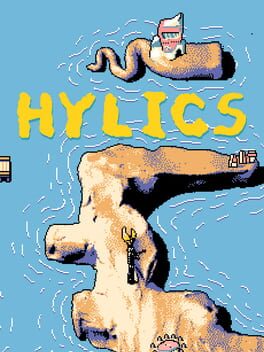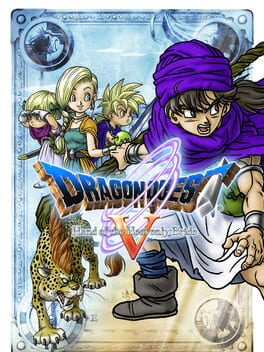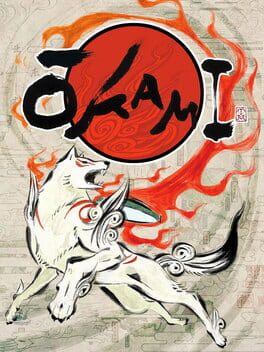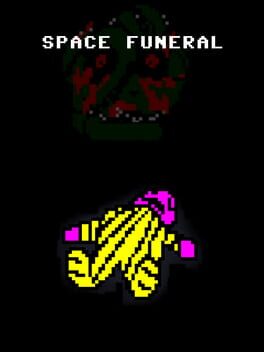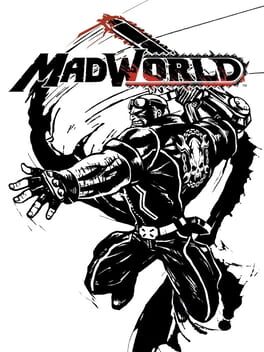Rombouts
Bio
wish i wrote more
wish i wrote more
Badges

Well Written
Gained 10+ likes on a single review

Noticed
Gained 3+ followers

Liked
Gained 10+ total review likes

Gone Gold
Received 5+ likes on a review while featured on the front page

Gamer
Played 250+ games

2 Years of Service
Being part of the Backloggd community for 2 years

N00b
Played 100+ games
Favorite Games
343
Total Games Played
000
Played in 2024
1644
Games Backloggd
Recently Reviewed See More
Those words that come up again and again
In homunculus but outside promise
Who can render that season of feeling?
I see no throughline except for certain central entities that shuffle mysteriously, gaining a surreal existence. A definite preoccupation with the flesh, with innards as the place where hidden intensities play. A concern with purification, exchange, decay, rejuvenation and several adjacent processes. The specific configuration and disposition of these forces, however, is as ever shifting as the poetry that reveals them.
Some of these forces: nodules, thrums, flesh, lard, furnace, sustenances, exaltation, ASTRIDE, apparel. Texturize, convexity, vent, hydration. Vacuum, corrosion, beast, Her, mandible.
They become metaphysical entities, essences fundamental and always already known. Latent powers at the ready, found as having been crawling all this time before, juggling the balance of primordial clay.
Though repetition naturalizes, repetition also undoes its own work and shifts itself anew, as the internal specificity of each repetition bring forth the object once more, and, in a sense, recreate it. Repetition gives them a chance to breathe once more in a peculiar logic, complete in its own way, yet immediately relativized by the creation of more poetry. As such the world remains endlessly fascinating and weird, always mildly unsettling as things like furnaces and mandibles are actively renewed by the game and yourself, in a collective clay poetry. The poetic alternatives reflect the flickering nature of flesh in this world.
I include the player because they mediate every instance with past ones, the “defunct but always somehow present” trails that are no more, those meanings that have passed and yet throw down their efficacy on you as you read the next generation of beings. The game doesn't have a relationship with this "past", you are the retainer of previous structures the game announced, and as such the specific way in which each instance reconstructs meaning relates exclusively with your reception. The player is herself the site of these convulsions, as it is the only element capable of retaining history.
I’ll put forward an example of this whirlpool of meaning construction. Take this quote:
Who’s wonderfully pardoning amidst that engine?
Who indulges the passion inside my sustenance?
It is, totally, that “pain”
First time encountering it my interpretation was that pain signified hidden interactions inside. Like things are in motion inside the viscera, autonomous subjectivities bargaining on their desires, occult dealings of the flesh invisible to us, but rendering themselves visible in pain. As if every instance of pain is us bearing witness to altercations inside us. Pain is the testament of this gothic machine's innerworkings.
Other stanzas I encountered seemed to support this:
What’s rocking inside their corrosion?
What dances the pain amidst their being?
It is, miraculously, their “mirror”
However, as new verses poured out, a new cast of forces is introduced, and old ones are recontextualized:
Greatly I hoist his skeleton
So I avenge his forbidden hope.
Like a gentle mirror-season.
Their furnace… Bleed their furnace!
Avenge their weaponized furnace but his vital pain
Sort of miraculously appears as the concavity-product!
His crystal will expansively rescue amidst their
pain. For he arrogantly exalts his corrosion
above hers.
Here I am taken aback, suddenly a new central figure is introduced, “him”. He is now the site of pain, as he relates to furnaces, mirror-seasons, and Her.
The first stanza positions “him” as a symbol to avenge – a figure whose death, whose skeleton, must be harnessed as the energy for hope. The second stanza produces the figure of the “furnace”. Furnaces are some sort of spiritual exchange machine, where the spirit of the hero is bled for its vitality. Lastly, we become aware of a conflict between “him” and “her”.
All of this to say that what was a reading that circumscribed the forces of this world to an internal struggle inside the organs and the flesh, suddenly produces much bigger figures and the whole rhythm of the world changes. Now you have struggles between icons, with a history of worship and advanced technologies of body-harnessing.
This is absolutely exhilarating to read, I constantly feel amazed and curious. The true achievement of this game is to have a generated poetics that, once understood as such, does not motivate you to read it less, or to stop wanting to make a sense of it. It doesn’t stop curiosity in its tracks. On the contrary, it constantly invites thought, bursting at the seams with new chances for an original forthcoming meaning-construction. So even with a poetry as surreal as this, it never feels empty and senseless. Even though generated, the cast of forces is not random. The constellation may shuffle around, but the stars are the same.
I notice if I try writing about a game I just hyperfocus on one thing. Hopefully something universal came through, hopefully the component revealed the set, hopefully the star implied the constellation.
In homunculus but outside promise
Who can render that season of feeling?
I see no throughline except for certain central entities that shuffle mysteriously, gaining a surreal existence. A definite preoccupation with the flesh, with innards as the place where hidden intensities play. A concern with purification, exchange, decay, rejuvenation and several adjacent processes. The specific configuration and disposition of these forces, however, is as ever shifting as the poetry that reveals them.
Some of these forces: nodules, thrums, flesh, lard, furnace, sustenances, exaltation, ASTRIDE, apparel. Texturize, convexity, vent, hydration. Vacuum, corrosion, beast, Her, mandible.
They become metaphysical entities, essences fundamental and always already known. Latent powers at the ready, found as having been crawling all this time before, juggling the balance of primordial clay.
Though repetition naturalizes, repetition also undoes its own work and shifts itself anew, as the internal specificity of each repetition bring forth the object once more, and, in a sense, recreate it. Repetition gives them a chance to breathe once more in a peculiar logic, complete in its own way, yet immediately relativized by the creation of more poetry. As such the world remains endlessly fascinating and weird, always mildly unsettling as things like furnaces and mandibles are actively renewed by the game and yourself, in a collective clay poetry. The poetic alternatives reflect the flickering nature of flesh in this world.
I include the player because they mediate every instance with past ones, the “defunct but always somehow present” trails that are no more, those meanings that have passed and yet throw down their efficacy on you as you read the next generation of beings. The game doesn't have a relationship with this "past", you are the retainer of previous structures the game announced, and as such the specific way in which each instance reconstructs meaning relates exclusively with your reception. The player is herself the site of these convulsions, as it is the only element capable of retaining history.
I’ll put forward an example of this whirlpool of meaning construction. Take this quote:
Who’s wonderfully pardoning amidst that engine?
Who indulges the passion inside my sustenance?
It is, totally, that “pain”
First time encountering it my interpretation was that pain signified hidden interactions inside. Like things are in motion inside the viscera, autonomous subjectivities bargaining on their desires, occult dealings of the flesh invisible to us, but rendering themselves visible in pain. As if every instance of pain is us bearing witness to altercations inside us. Pain is the testament of this gothic machine's innerworkings.
Other stanzas I encountered seemed to support this:
What’s rocking inside their corrosion?
What dances the pain amidst their being?
It is, miraculously, their “mirror”
However, as new verses poured out, a new cast of forces is introduced, and old ones are recontextualized:
Greatly I hoist his skeleton
So I avenge his forbidden hope.
Like a gentle mirror-season.
Their furnace… Bleed their furnace!
Avenge their weaponized furnace but his vital pain
Sort of miraculously appears as the concavity-product!
His crystal will expansively rescue amidst their
pain. For he arrogantly exalts his corrosion
above hers.
Here I am taken aback, suddenly a new central figure is introduced, “him”. He is now the site of pain, as he relates to furnaces, mirror-seasons, and Her.
The first stanza positions “him” as a symbol to avenge – a figure whose death, whose skeleton, must be harnessed as the energy for hope. The second stanza produces the figure of the “furnace”. Furnaces are some sort of spiritual exchange machine, where the spirit of the hero is bled for its vitality. Lastly, we become aware of a conflict between “him” and “her”.
All of this to say that what was a reading that circumscribed the forces of this world to an internal struggle inside the organs and the flesh, suddenly produces much bigger figures and the whole rhythm of the world changes. Now you have struggles between icons, with a history of worship and advanced technologies of body-harnessing.
This is absolutely exhilarating to read, I constantly feel amazed and curious. The true achievement of this game is to have a generated poetics that, once understood as such, does not motivate you to read it less, or to stop wanting to make a sense of it. It doesn’t stop curiosity in its tracks. On the contrary, it constantly invites thought, bursting at the seams with new chances for an original forthcoming meaning-construction. So even with a poetry as surreal as this, it never feels empty and senseless. Even though generated, the cast of forces is not random. The constellation may shuffle around, but the stars are the same.
I notice if I try writing about a game I just hyperfocus on one thing. Hopefully something universal came through, hopefully the component revealed the set, hopefully the star implied the constellation.
I like how all the violence is framed in this carnivalesque setting, with festival attractions turned morbid. Not only does it go hand-in-hand with the in-story justification for “the games” (that it should be a show for the sponsors), it also maps the arcade like facets into the world’s logic, like racking up points is all part of the deal in this hell hole. A baroque exaltation of the excess action movie bullshit violence, and it’s great.
Also it recognizes that extreme violence works if the tone is not self-serious. Plenty of gore centred media can become unintentionally funny and fail. The other approach, taken here, is to lean into the silliness of the excess. The game constantly shows the carnage as funny, glossy, stylish. If it was constantly framing its violence as a moody or disastrous thing, it would come off as corny, I think. It succeeds because it knows its violence to be a casual, pointless haze of speedy executions.
Also it recognizes that extreme violence works if the tone is not self-serious. Plenty of gore centred media can become unintentionally funny and fail. The other approach, taken here, is to lean into the silliness of the excess. The game constantly shows the carnage as funny, glossy, stylish. If it was constantly framing its violence as a moody or disastrous thing, it would come off as corny, I think. It succeeds because it knows its violence to be a casual, pointless haze of speedy executions.
Mechanical minimalism is much more successful here than in other similar games. The point isn’t to make your game completely bare, but to populate it with pointless stuff. Truly leisurely empty “strolling” needs to have places to stop your trip, aimless landmarks. The feeling of a slow vastness needs to be evoked by the colourful emptiness reflected in elements, not in the absence of such objects. You evoke the soft candid drowsiness through the opaqueness of colourful materials. Animal Crossing, and, of course, studio Skip’s other works like Chibi-Robo and GIFTPIA excel at this (haven’t played the latter. A translation is completed but hacking needs to be done to make it a patch you can apply to ISOs).
A kind of sleepy pleasure, a game that kidnaps you into its rhythm. It’s hard to not become frustrated at its leisurely pace sometimes, but I wonder how much of that difficulty lies with how turbulent and lost most days spent in the digital non-places have become. Nowadays I often start a game to "get it off the checklist" (and sites like backloggd have gamified the exhaustion with which I play these days). A strategized plan made schedule, a ready-made bullet point formatter for what gaming should be. I check how long it takes before starting, I multitask and listen to podcasts while playing. All of this has made me increasingly impatient, and harder to curate a more intentional experience where I just sit down with a game for a couple of hours. It was seemingly impossible to not have every game be a haze of multimedia engagement, with different things going on in the background and at the ready, the procedural downloads of things outside the experience. Not that any experience is pure, but that it should be curated, intentionally embarked on, instead of a hallucinatory daze of "getting it over with". I haven't played a game normally in a while now, not like I used to anyways. Media consumption overdrive: tab out, check your phone, start a download, open up a stream - the game muddled irreparably on ghost copy presences, wireless gunk installs and mounts greyness. Lost in digital deep time. Suffocating electric mist is the norm, buzzing foam of static – sleepy vague executions of tired eyes, causing the game to bleed steadfast into a thousand simultaneous "goings-on".
Of course, games today encourage this fluidity, this "muddling". It’s worse to have a game that truly ends, instead of seamlessly merging in the grey gunk of the digital. A game gains much more in becoming a passive element than a contained experience. It's better to have people starting up the game to do their dailies, get their log-in bonuses, and finish the battle pass than having a more consistent but shorter game. Ultimately it gains in becoming a grey part of your life (even if this is particularly the case for multiplayer competitive games, and the features I listed are pretty much restricted to those, singleplayer games have also succumbed to the pressure of maximizing interconnectivity. Constantly platforms logging in your achievements, little quests for completing tutorials, etc etc. The game doesn’t trust you to go 5 seconds without a fresh notification going off. And some of these “connectivity features” while harmless and fun, like seeing that your friends are online, seeing the percentage of players that have completed a certain task, sharing screenshots and art or something; I nonetheless feel like it becomes harder for a game to sit by itself, to just be, for a second).
Captain Rainbow makes you slow down. A comfy boredom that manually reset my media consumption habits. The development of the game’s pace is clearly intentional: there is no way to run (you have a charge button but it makes your character trip and fall), you routinely stop to eat, and at some point you get a car but the only thing you can do is push it, which is just as slow (the developers are personally reprimanding the player for wanting the game to go faster, so they give you a van you can push, but not ride). Characters are also on a day and night cycle making you take your time. All this culminates in a gaming experience that is extremely effective at making its slowness enjoyable. Washed-up classic characters from Nintendo’s past provide a relaxing and familiar (although purposefully uncanny, like the cursing Birdo and Fat Little Mac) landscape. Also, you fish and catch bugs. Maybe bug catching is the aesthetic figure that represents a perfect middle ground between minimalism and action. Bug catching as rhythmic concept, as genre, with or without bugs.
If it seems like this review spent more time talking about other games it’s because I felt the negative work of the game, of “taking out the mental trash”, was one of its greatest strengths. It’s also a game that is not interesting to describe. Described clearly the game is boring and empty. And yet it’s none of those things. I can’t bring myself to write about how wacky the characters are and how funny the dialogue is or whatever because, honestly, it’s a mediocre game and the characters are hit or miss. But it successfully achieves a slow pace that is hard to execute, and for trying that, I’m thankful to it.
While other game might cultivate a certain emptiness to give rise to uneasy feelings (walking simulators like Firewatch, Everybody’s Gone to The Rapture, The Stanley Parable), I don’t think there are many like Captain Rainbow. There’s plenty of “cosy chill games”, but most of them are crafting games with pleasant art styles, none of them are truly about mostly aimless interaction.
A kind of sleepy pleasure, a game that kidnaps you into its rhythm. It’s hard to not become frustrated at its leisurely pace sometimes, but I wonder how much of that difficulty lies with how turbulent and lost most days spent in the digital non-places have become. Nowadays I often start a game to "get it off the checklist" (and sites like backloggd have gamified the exhaustion with which I play these days). A strategized plan made schedule, a ready-made bullet point formatter for what gaming should be. I check how long it takes before starting, I multitask and listen to podcasts while playing. All of this has made me increasingly impatient, and harder to curate a more intentional experience where I just sit down with a game for a couple of hours. It was seemingly impossible to not have every game be a haze of multimedia engagement, with different things going on in the background and at the ready, the procedural downloads of things outside the experience. Not that any experience is pure, but that it should be curated, intentionally embarked on, instead of a hallucinatory daze of "getting it over with". I haven't played a game normally in a while now, not like I used to anyways. Media consumption overdrive: tab out, check your phone, start a download, open up a stream - the game muddled irreparably on ghost copy presences, wireless gunk installs and mounts greyness. Lost in digital deep time. Suffocating electric mist is the norm, buzzing foam of static – sleepy vague executions of tired eyes, causing the game to bleed steadfast into a thousand simultaneous "goings-on".
Of course, games today encourage this fluidity, this "muddling". It’s worse to have a game that truly ends, instead of seamlessly merging in the grey gunk of the digital. A game gains much more in becoming a passive element than a contained experience. It's better to have people starting up the game to do their dailies, get their log-in bonuses, and finish the battle pass than having a more consistent but shorter game. Ultimately it gains in becoming a grey part of your life (even if this is particularly the case for multiplayer competitive games, and the features I listed are pretty much restricted to those, singleplayer games have also succumbed to the pressure of maximizing interconnectivity. Constantly platforms logging in your achievements, little quests for completing tutorials, etc etc. The game doesn’t trust you to go 5 seconds without a fresh notification going off. And some of these “connectivity features” while harmless and fun, like seeing that your friends are online, seeing the percentage of players that have completed a certain task, sharing screenshots and art or something; I nonetheless feel like it becomes harder for a game to sit by itself, to just be, for a second).
Captain Rainbow makes you slow down. A comfy boredom that manually reset my media consumption habits. The development of the game’s pace is clearly intentional: there is no way to run (you have a charge button but it makes your character trip and fall), you routinely stop to eat, and at some point you get a car but the only thing you can do is push it, which is just as slow (the developers are personally reprimanding the player for wanting the game to go faster, so they give you a van you can push, but not ride). Characters are also on a day and night cycle making you take your time. All this culminates in a gaming experience that is extremely effective at making its slowness enjoyable. Washed-up classic characters from Nintendo’s past provide a relaxing and familiar (although purposefully uncanny, like the cursing Birdo and Fat Little Mac) landscape. Also, you fish and catch bugs. Maybe bug catching is the aesthetic figure that represents a perfect middle ground between minimalism and action. Bug catching as rhythmic concept, as genre, with or without bugs.
If it seems like this review spent more time talking about other games it’s because I felt the negative work of the game, of “taking out the mental trash”, was one of its greatest strengths. It’s also a game that is not interesting to describe. Described clearly the game is boring and empty. And yet it’s none of those things. I can’t bring myself to write about how wacky the characters are and how funny the dialogue is or whatever because, honestly, it’s a mediocre game and the characters are hit or miss. But it successfully achieves a slow pace that is hard to execute, and for trying that, I’m thankful to it.
While other game might cultivate a certain emptiness to give rise to uneasy feelings (walking simulators like Firewatch, Everybody’s Gone to The Rapture, The Stanley Parable), I don’t think there are many like Captain Rainbow. There’s plenty of “cosy chill games”, but most of them are crafting games with pleasant art styles, none of them are truly about mostly aimless interaction.

